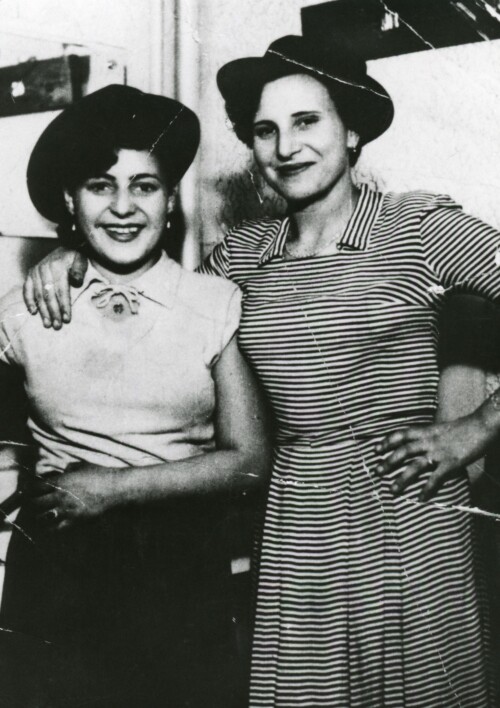
Helena Malíková
Helena Malíková, née Holomková, 1926, Louka (Hodonín district)
-
Testimony abstract
Helena Malíková had a sister Maria, who was two years older. Their mother Anna died when they were nine and eleven respectively. They were brought up by their stepfather Martin Holomek, who got married again to a woman with four children and did not pay much attention to his own daughters. Malíková grew up near Uherské Hradiště by the river Morava in a settlement composed of old freight wagons behind a sugar factory. The wagons looked like a disused train, but inside they were painted with white oil paint and adapted for living in - with a kitchen, stove and living room. One hundred and fifty Roma lived in them. Helena Malíková's family was the only one that had a house of brick.[1]
- [1] Ctibor Nečas states that it was the Přední kruhy locality, which is now part of the town of Uherské Hradiště. The Romani people there originally inhabited a settlement made up of wooden huts and tent shelters, as depicted by the painter František Dostalík (oil painting Gypsy Camp in the Old Town). During the construction of the railway branch line, the dwellings had to be demolished and the state railway administration provided accommodation for the inhabitants in fifteen disused freight wagons.
Helena Malíková, her sister Maria and her foster father were interned in the so-called gypsy camp in Hodonín u Kunštátu. In August 1943, she took part in cleaning up after the transport that took most of the imprisoned Roma and Sinti to the Auschwitz II - Birkenau concentration camp.
Malíková was deported to the Auschwitz II-Birkenau camp from Brno in the last mass transport of Roma and Sinti from the Protectorate, which was dispatched on 28 January 1944. In the concentration camp, they carried out pointless work, such as moving heavy stones from place to place. After the pseudo-medical experiments performed on her in the camp, she could not have children for a long time after the war. On 15 April 1944 she was transported to Ravensbrück; from there she was taken as forced labour in the underground munitions factory in Schlieben and finally to the munitions factory in Altenburg. Her foster father and sister Marie perished in Auschwitz II - Birkenau.
Helena Malíková, along with Růžena Danielová and Vlasta Danielová, performed the song Aušvicate hi khér báro, which was sung by Protectorate Roma imprisoned in the Auschwitz II-Birkenau camp.
How to cite abstract
Abstract of testimony from: HORVÁTHOVÁ, Jana a kol. ... to jsou těžké vzpomínky. 1. svazek. Vzpomínky Romů a Sintů na život před válkou a v protektorátu. Brno: Větrné mlýny, Muzeum romské kultury, 2021. ISBN 978-80-86656-45-8, 16-17, 173-174, 357, 374, 413, 439, 614-616, 662-663, 685-686. Testimonies of the Roma and Sinti. Project of the Prague Forum for Romani Histories, https://www.romatestimonies.com/testimony/helena-malikova (accessed 12/5/2025) -
Origin of Testimony
The interview with Helena Malíková was recorded in Czech on 28 May 1991 in Uherské Hradiště in the form of an audio recording; it is in the collections of the Museum of Romani Culture (MRC) in Brno and is available online at the website of the United States Holocaust Memorial Museum. It also quotes from a memoir recorded by Ctibor Nečas and published in the book Aušvicate hi khér báro. Čeští vězňové cikánského tábora v Osvětimi II – Brezince (Aušvicate hi khér báro. Czech gypsy prisoners in the Auschwitz II-Birkenau camp, published by Masaryk University in Brno, 1992). The memoirs are supplemented by two post-war photographs of the eyewitness from the MRC collections.
-
Where to find this testimony




